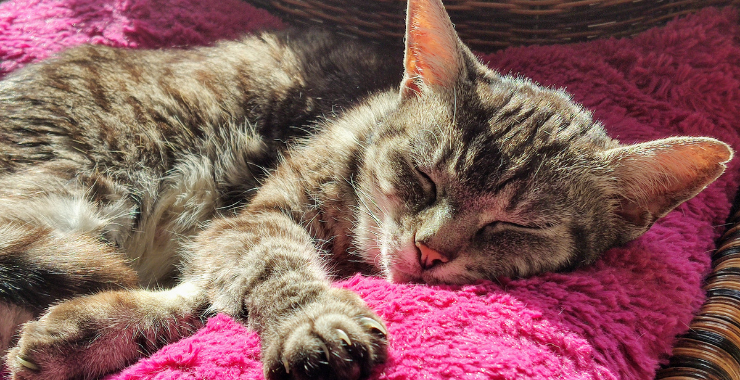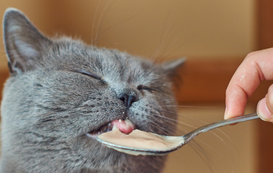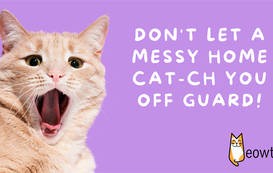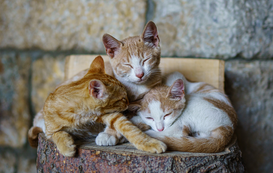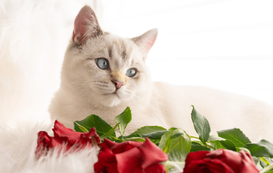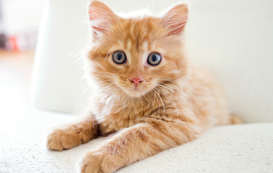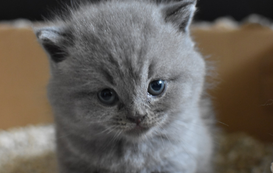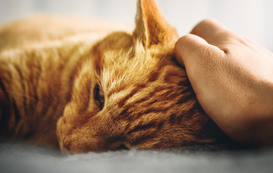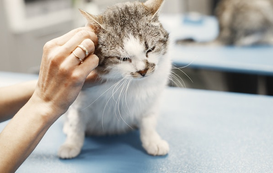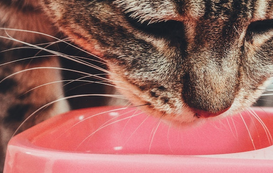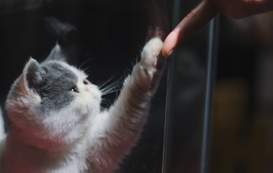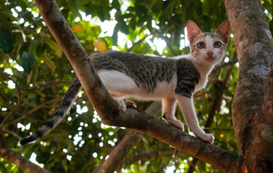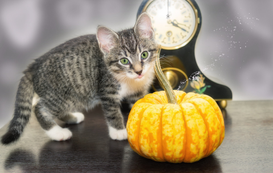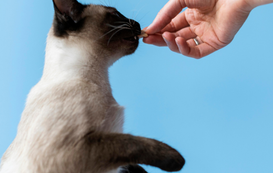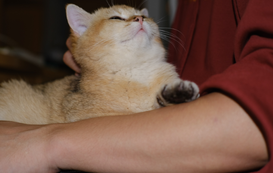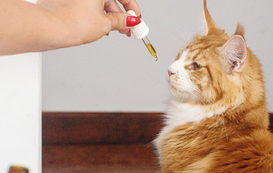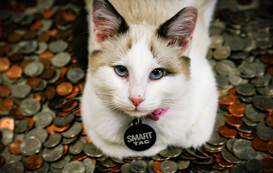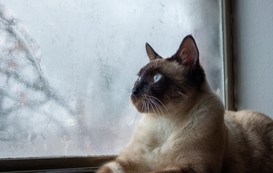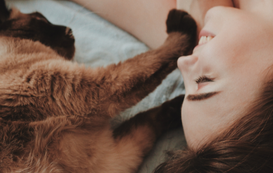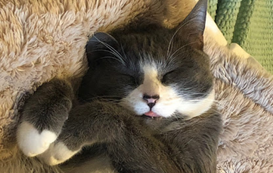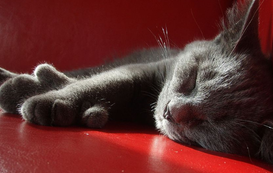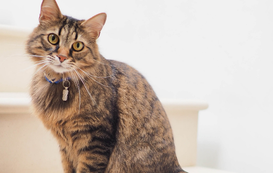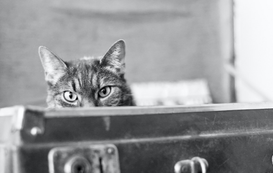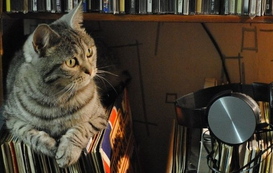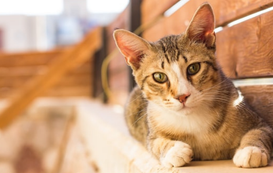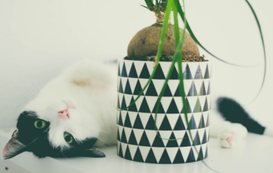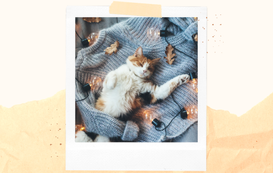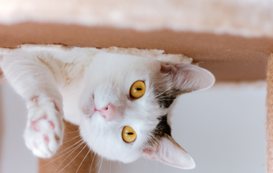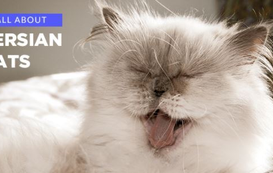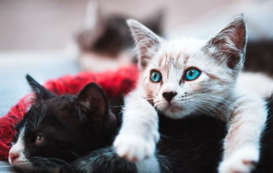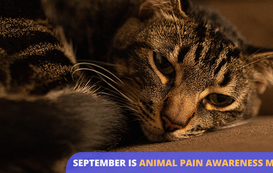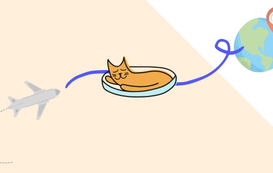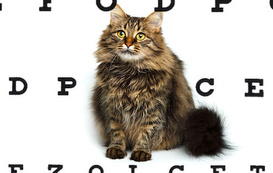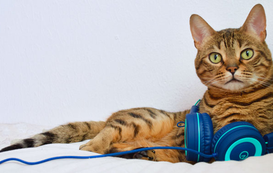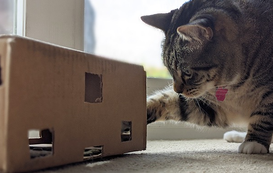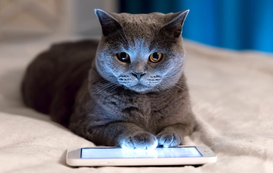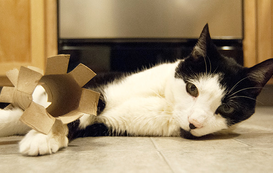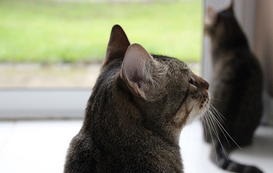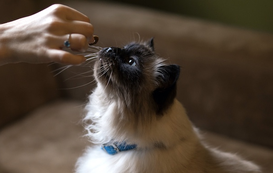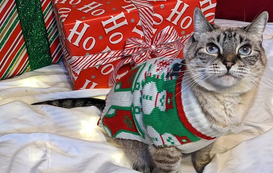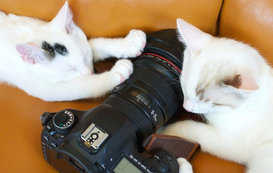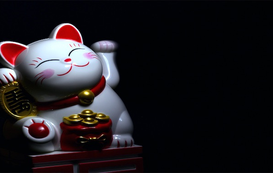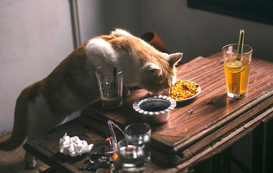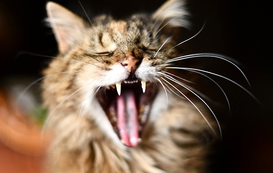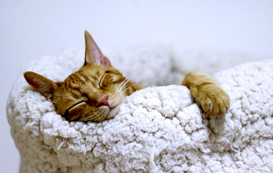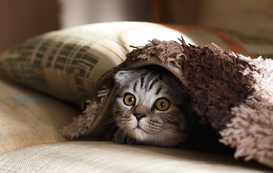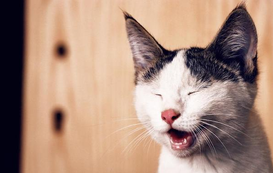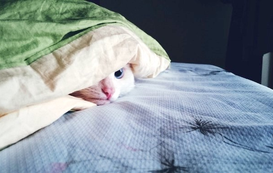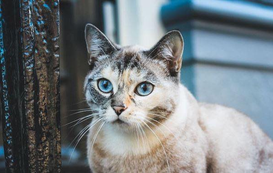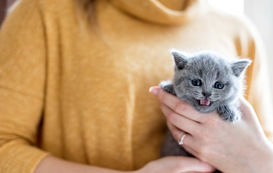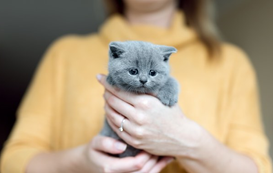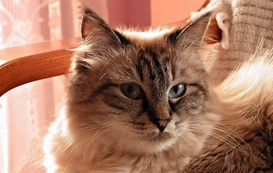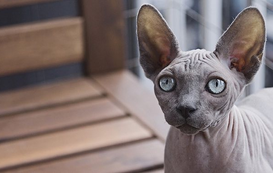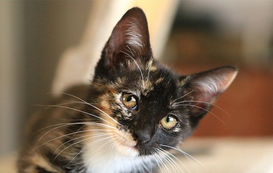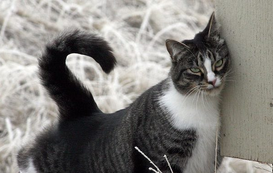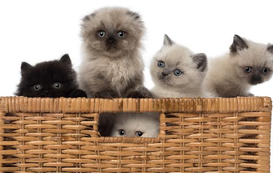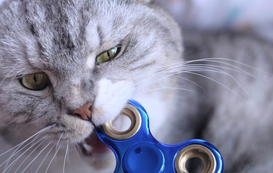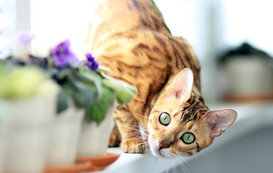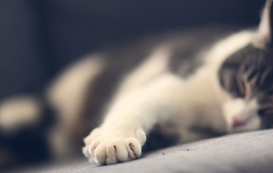Hello everyone-Happy National Senior Pet Month! In honor of, today we're going to talk all about senior cats and answer some of the pressing questions on our minds. For instance, who qualifies as a senior cat? What are the characteristics to look out for as your cat enters their senior years? And most importantly, how can we keep our senior cats healthy? More on those later.
First things first, here are some things you'll have to look forward to as your cat enters their senior years. Their unique personality will become fully-developed and at its prime, so you'll get to enjoy their true self. And thanks to the newfound wisdom and maturity that comes with old age, they'll be less likely to engage in the mischief younger cats are known for (your ankles will be happy about that). It's true: senior cats make great companions and great napping buddies, too!
It's important to keep in mind, though, that senior cats require some extra understanding as they go through the accompanying physical and behavioral changes of aging. Don't fret, though; these changes are natural and will only require some simple adjustments to help keep your cat comfortable and happy.
Now, on to those pressing questions.
Who qualifies as a senior cat?
So, at what age are cats considered seniors?
Luckily for both cat-lovers and cats alike, our feline friends are now living longer than ever before thanks to improvements in their nutrition, vet care, and homecare combined. Because of this, the age of feline seniority has shifted higher in recent years. According to an article by International Cat Care, cats are now considered in their senior years at age 11.
While the accompanying physical and behavioral changes in your aging cat are normal and natural, it's important to know what changes to look out for in order to help keep your furry friend as healthy as possible going forward. The fact is, once a cat enters their senior years they become more vulnerable than they once were, so they'll need some extra love and care.
With that in mind, what changes do we need to look out for?
What are the characteristics of senior cats?
While your sweet, senior cat may become gentler and more likely to join you in a nap than ever before, they will also go through some other common physical and behavioral changes during their senior years.
Many of these changes are simply an act of nature and therefore do not call for treatment; however, it's still important to recognize them in order to actively manage them and maintain your cat's health. Some common characteristics in aging cats include:
- Lower activity levels and the subsequent loss of muscle
- The decline of eyesight, hearing, and sense of smell
- The weakening of their immune system
- Changes in vocalization
- More frequent napping
- Grooming difficulties
- Changes in bathroom habits
- Changes in dental health
- The development of an age-related disorder, such as diabetes or hyperthyroidism
According to International Cat Care, you should make a vet appointment if any of the following occurs to your senior cat:
- They experience a loss of appetite
- They exhibit a noticeable change in weight
- They start drinking a large amount of water throughout the day
- They show signs of mobility issues or pain
- They act lethargic or disoriented
- They have lumps anywhere on their body
- They frequently urinate or defecate outside the litter box or have difficulty going to the bathroom
- They show signs of uncharacteristic behavior, such as hiding, aggression, excessive vocalization
Of course, whether or not you're noticing these changes in your senior cat, it's important to increase the frequency of their regular vet visits in order to help catch underlying health issues quickly and to best maintain their overall health.
How can we keep our senior cats healthy?
As mentioned above, increasing regular vet visits per your veterinarian's recommendation is the best way to help keep your cat comfortable and as healthy as possible as they age. However, vet visits aside, there are also things we can be doing at home to keep our senior cats healthy and happy as well.
According to Dr. Ken Lambrecht at PetMD, here are some things we can be doing to support the health and comfort of our senior cats at home:
- Stay on top of meeting all their basic needs: taking extra care to maintain their water bowl, food bowl, litter box, grooming and oral care, social interactions, etc. will help keep your senior cat's stress levels low and their comfort and happiness high.
- Regularly weigh your cat: it's important to keep tabs on your senior cat's weight to check that they're not struggling with any underlying health issues. Refer to the weight range your vet advises, and keep note of any fluctuations. If your cat's weight fluctuates outside of that range, it's important to bring them in for a visit to check for potential issues. When weighing them, verify your scale can measure an ounce or less for accuracy.
- Get a low-entry litter box: once your cat enters their senior years, they may face issues such as declining mobility or arthritis. It's important to provide easy access in and out of their litter box to avoid unnecessary pain or elimination issues.
- Help them avoid dehydration by providing simple access to fresh water: dehydration is a common issue for senior cats, so be sure to provide easy access to fresh water throughout your home. Use a wide, low bowl to avoid "whisker fatigue" and be careful to keep it clean.
- Find a cat sitter on Meowtel so there's someone to watch and care for your senior cat if you need to go out of town: it's really important not to leave your senior cat alone for very long to keep their stress and anxiety levels low. Have a trusted cat sitter on Meowtel ready in case you need to go out of town.
Above all, be sure to observe and note the changes your senior cat exhibits, and give them lots of care, love, and affection: they'll thank you for it in their own, unique cat way.
Ready to ensure your senior cat gets the best care while you're away? Find a cat sitter on Meowtel today!

